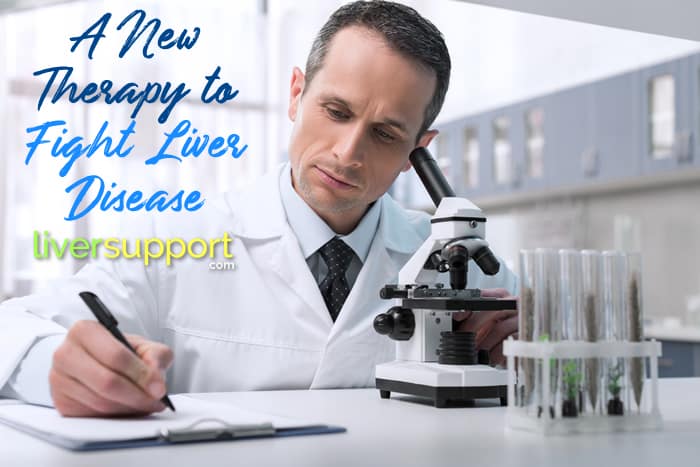
Previous
A New Reliable Way to Test Liver Fibrosis and Cirrhosis

Next
The Hidden Link Between Fatty Liver and Type 2 Diabetes
A New Therapy Has Been Tested for its Capability of Fighting Liver Disease
Researchers from the University of Colorado Anschutz Medical Campus may have discovered a new therapy to fight liver disease.
Nonalcoholic fatty liver disease (NAFLD) affects about 100 million people living in the United States and has doubled over the past 20 years. It’s also one of the most common forms of liver disease that is found in children. (1) At this time, there are no medical treatments for NAFLD. This is where researchers came in to study a new therapy that has shown promising results in mice.
NAFLD 101
Here’s a little breakdown of what NAFLD is and who it affects.
NAFLD is a buildup of extra fat in liver cells that is not created by drinking alcohol. Our livers normally contain fat, but when the total weight reaches a fat level of 5 to 10% it’s referred to as a fatty liver (steatosis).
The early stages of NAFLD is steatosis, but that can continue to progress into a condition called nonalcoholic steatohepatitis (NASH). This condition is characterized by the presence of fibrosis, a formation of large amounts of scar tissue in the liver. Scar tissue is created when the liver attempts to repair and replace cells that have been damaged.
Oftentimes, this extra fat develops in individuals who are overweight or obese, have high cholesterol or triglycerides, or have diabetes. On the other hand, rapidly losing weight and eating a poor diet can also lead to NAFLD.
Symptoms and Treatment

If you’re affected by NAFLD, you may not show symptoms. If there are any, they include: (2)
• Fatigue
• Weakness
• Loss of appetite
• Nausea
• Abdominal pain
• Spider-like blood vessels
• Yellowing of skin and eyes (jaundice)
• Fluid buildup and swelling legs (edema) and abdomen (ascites)
• Mental confusion
As previously mentioned, there is not a medical treatment for NAFLD. Focusing on a healthy diet and exercising regularly may help to prevent liver disease from occurring or reverse it in the early stages.
Besides healthy eating and regular exercise, NAFLD can also be prevented by:
• Maintaining a healthy weight
• Limiting alcohol consumption
• Only taking medications that you need and following dosages
New Therapy for Fight NAFLD
Researchers from the University of Colorado Anschutz Medical Campus had their study published July 2020 in Nature Communications (3) to help reduce the major health issue that is NAFLD.
When it comes to NASH, researchers found that Methylation-Controlled J Protein (or MCJ) was a potential target. This protein sets up shop in our cell’s mitochondria (the powerhouse of the cell) where lipids (fats) are burned in the liver. MCJ stops the metabolic activity (such as the fat burning) that’s happening in the mitochondria and is often found in high levels in people with NAFLD.
Since we don’t need MCJ to survive, the researchers decided to eliminate this protein to prevent it from stopping the metabolic activity happening in the mitochondria. This will allow the fat burning to continue, minimize the amount of lipids building up in the liver, and therefore prevent fibrosis from developing.
Small Interfering RNA (or siRNA) were used to quiet the MCJ in the liver. In order to test if siRNA for MCJ (aka siMCJ) was a therapeutic option, mice were fed a high-fat, high fructose diet for months. At that point they developed fatty liver and were treated regularly with siMCJ or a placebo.
Results found that the group receiving siMCJ treatments had lower lipid levels and fibrosis in their livers compared to the control group that was receiving placebo treatments. Similar results were found in mice that were given a low protein diet.
A key point of this therapy is to ensure that the correct part of the liver is receiving this treatment. In order to do that, researchers combined siRNA with GalNac (a sugar derivative that binds to hepatocytes). Hepatocytes are cells that make up the majority of the liver, which allows treatment to get where it needs to go in the liver. (4)
Overall, MCJ deficient mice showed resistance to developing fatty liver disease but the therapy also reduces liver steatosis and fibrosis in mice already diagnosed with the disease.
Conclusion
NAFLD is a major health issue that is affecting a large percentage of the world’s population. Research and studies like this will help to pinpoint therapies that could reduce the amount of people affected by this uncurable condition.
Moving forward, further research needs to be completed on humans to ensure therapies similar to this are safe and effective on more than just animal models.
- Nonalcoholic Fatty Liver Disease. (n.d.). Retrieved August, 2020, from https://liverfoundation.org/for-patients/about-the-liver/diseases-of-the-liver/non-alcoholic-fatty-liver-disease/
- Nonalcoholic fatty liver disease. (2019, August 22). Retrieved August, 2020, from https://www.mayoclinic.org/diseases-conditions/nonalcoholic-fatty-liver-disease/symptoms-causes/syc-20354567
- Barbier-Torres, L., Fortner, K. A., Iruzubieta, P., Delgado, T. C., Giddings, E., Chen, Y., . . . Rincón, M. (2020). Silencing hepatic MCJ attenuates non-alcoholic fatty liver disease (NAFLD) by increasing mitochondrial fatty acid oxidation. Nature Communications, 11(1). doi:10.1038/s41467-020-16991-2
- Staff, S. (2020, July 08). Researchers find promising therapy to fight epidemic of liver disease. Retrieved August, 2020, from https://medicalxpress.com/news/2020-07-therapy-epidemic-liver-disease.html






